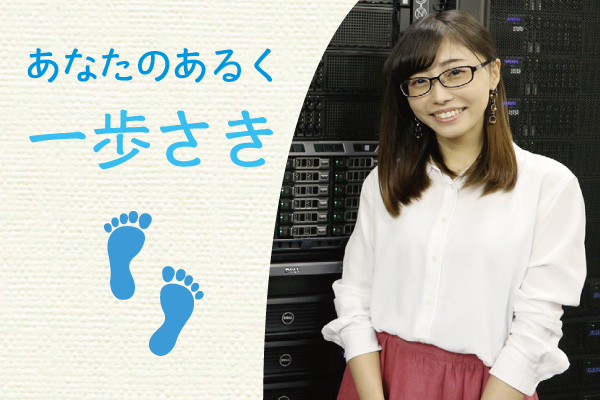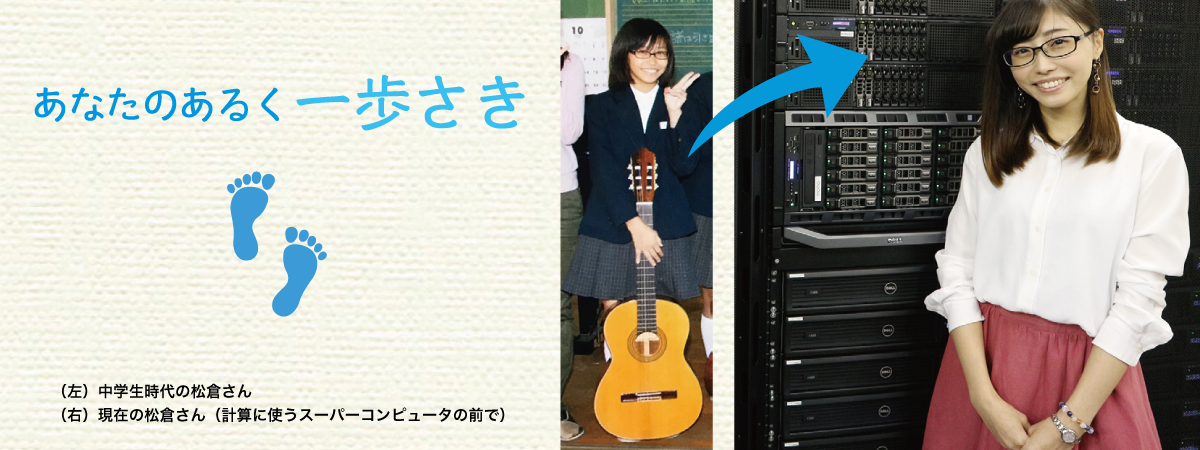- someone
- Information for Middle and High School Researchers
- Research Tips
A girl who dreamed of a career in music expresses the movement of small molecules as a researcher
2019.12.16

Ask the sempai who are a little further ahead what they have been thinking, experiencing, and following their paths. If you take a step forward, you too may be able to reach the future you envision.
Graduate School of Bioscience and Biotechnology, Kinki University
Master's level student in the Department of Biosystems Engineering (2nd year)
pine tree (Pinus spp.)warehouse villageRisa Matsukurathree
Ms. Matsukura loved to play the piano, violin, sing, dance, and express herself. The high school student in the art course chose a career path in "biomolecular simulation," a research field that requires knowledge of multiple science subjects, including biology, information science, and physics.
Q: How did you get started in "biomolecular simulation"?
When I was a sophomore in high school, I visited Kinki University's open campus and encountered computer simulation. I was excited to learn that it was possible to predict various things, such as people's preferences and behavior. In addition to music, I also love living organisms, and I decided to enroll in Kinki University because I thought I could conduct research on predicting the mechanisms of living organisms! I decided to enter the university. The field of "biomolecular simulation," which I encountered at the university, can computationally predict the movements of many molecules working in the body. I chose my current laboratory because I wanted to visualize with my own hands the world in which proteins so small that they are invisible to the human eye move. I was also encouraged by Associate Professor Naoyuki Miyashita's words, "You don't have to be good at biology, information science, or physics to come to our laboratory.
Q: When are you most excited about your research?
In my research, I try to predict how small molecules in drugs bind to disease-causing proteins. The most exciting part is when, despite repeated programming errors, we are finally able to successfully reproduce what actually happens in the body through simulation. For example, if a drug binds to the wrong protein, it can cause side effects in the body. Using simulation, we can reproduce the binding of the drug to the wrong protein and suggest what kind of drug we should make to avoid side effects.
Q: How do you decide what you want to do and what career path you want to pursue?
I have been following my heart and doing what I wanted to do at the time, such as music until high school and research after entering university. On the other hand, if I didn't want to do something, I didn't do it. I don't think I will regret my decisions in this way. Even when I lacked knowledge, I valued the feeling of wanting to do something and knowing about it! I enjoy learning new things one by one. I would like to continue to express various worlds of invisible small molecules through simulations, not limited to drug research.
(Interviewer: Shinji Hamaguchi)From someone vol. 49
